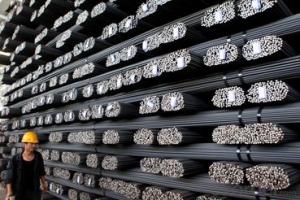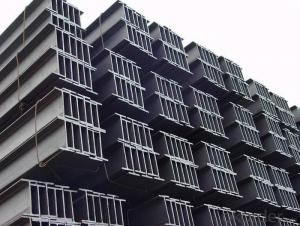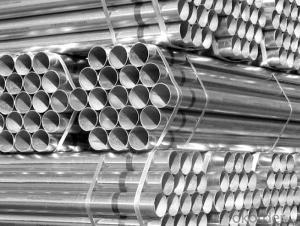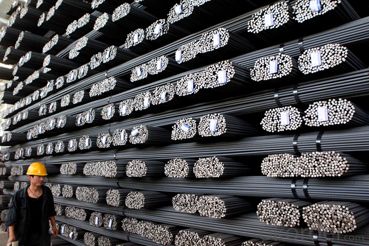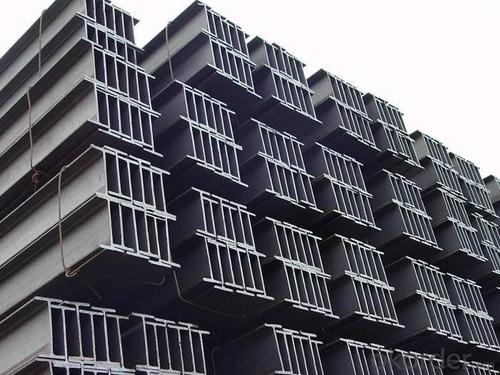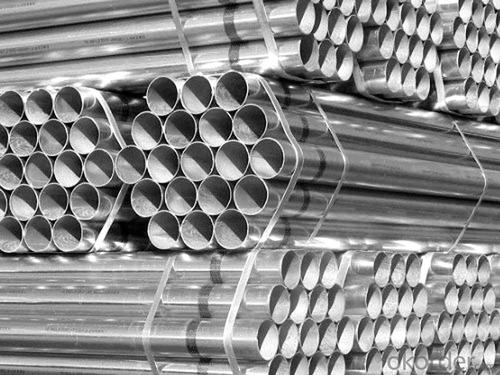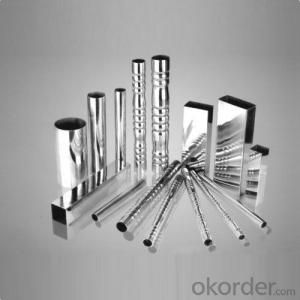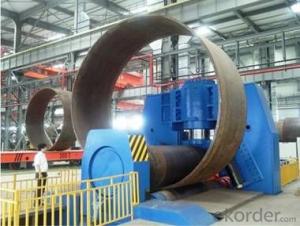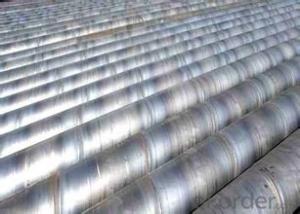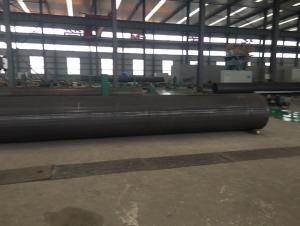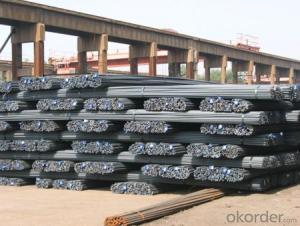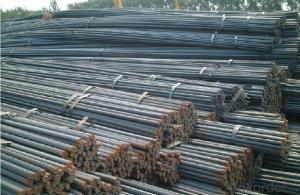Steels Manufacture Building Material with Good Quality on Hot Sale
- Loading Port:
- Tianjin
- Payment Terms:
- TT OR LC
- Min Order Qty:
- 100 m.t
- Supply Capability:
- 1000 m.t/month
OKorder Service Pledge
OKorder Financial Service
You Might Also Like
1.Packaging & Delivery
Packaging Detail: | in bundles or as customer's requirement |
Delivery Detail: | Within 30days after receiving your deposit or copy of L/C |
2.Specifications
HRB400,HRB500 Steel Rebars
1.China direct supplier
2.Best service
3.Competitive price
4.Quantity assured
3.Product Description
Name | High Tensile Export Reinforcing Steel Bar ,Deformed Steel Bar ,HRB400B,HRB,46B,HRB500 Building Construction Material |
Standard | ASTM A615 /BS BS 4449 /GB HRB/ JIS G3112 |
Grade | A615 Gr40/60/75 BS 4449 Gr460,B500 GB HRB335,HRB400 ,HRB500
JIS G3112 SD390
|
Diameter | 6mm-40mm |
Length | 6-12m |
Technique | Low temperature hot-rolling reinforcing deformed steel rebar |
Tolerance | As the standard or as your requirement |
Application | Building, construction, road, bridge,etc |
Certificated | BV |
MOQ | 500tons per size steel rebar |
Packing details | Steel rebar packed in bundle or as your requirement |
Delivery | Within 30 days after deposit |
Payment | T/T or L/C |
4.Chemical Composition
Grade | Technical data of the original chemical composition (%) | |||||||
C | Mn | Si | S | P | V | |||
HRB400 | ≤0.25 | ≤1.60 | ≤0.80 | ≤0.045 | ≤0.045 | 0.04-0.12 | ||
Physics capability | ||||||||
Yield Strength(N/cm2) | Tensile Strength(N/cm2) | Elongation (%)
| ||||||
≥400 | ≥470 | ≥14 | ||||||
Grade | Technical data of the original chemical composition (%) | |||||||
C | Mn | Si | S | P | V | |||
HRB500 | ≤0.25 | ≤1.60 | ≤0.80 | ≤0.045 | ≤0.045 | 0.04-0.12 | ||
Physics capability | ||||||||
≥500 | ≥630 | ≥12 | ||||||
5. Theorectical weight
Diameter (MM) | Cross Sectional Area (MM2) | Theorectical Weight (KG/M) | Weight of 12M Bar (KG) | A Ton Contains 12M Bars (PCS) |
6 | 28.27 | 0.222 | 2.664 | 375.38 |
8 | 50.27 | 0.395 | 4.74 | 210.97 |
10 | 78.54 | 0.617 | 7.404 | 135.06 |
12 | 113.1 | 0.888 | 10.656 | 93.84 |
14 | 153.9 | 1.21 | 14.52 | 68.87 |
16 | 201.1 | 1.58 | 18.96 | 52.74 |
18 | 254.5 | 2 | 24 | 41.67 |
20 | 314.2 | 2.47 | 29.64 | 33.74 |
22 | 380.1 | 2.98 | 35.76 | 27.96 |
25 | 490.9 | 3.85 | 46.2 | 21.65 |
28 | 615.8 | 4.83 | 57.96 | 17.25 |
32 | 804.2 | 6.31 | 75.72 | 13.21 |
36 | 1018 | 7.99 | 98.88 | 10.43 |
40 | 1257 | 9.87 | 118.44 | 8.44 |
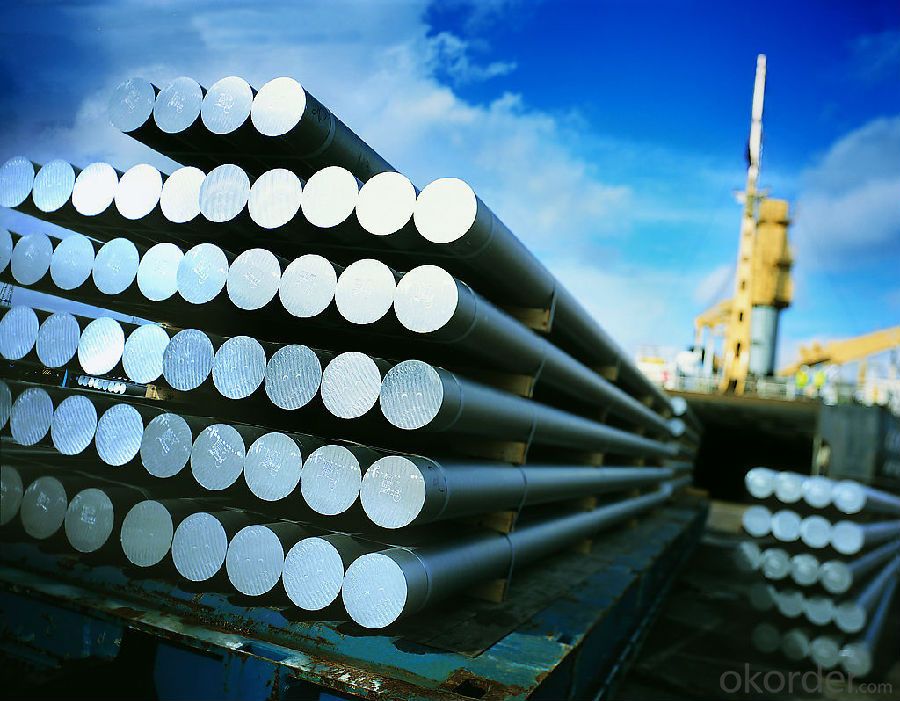
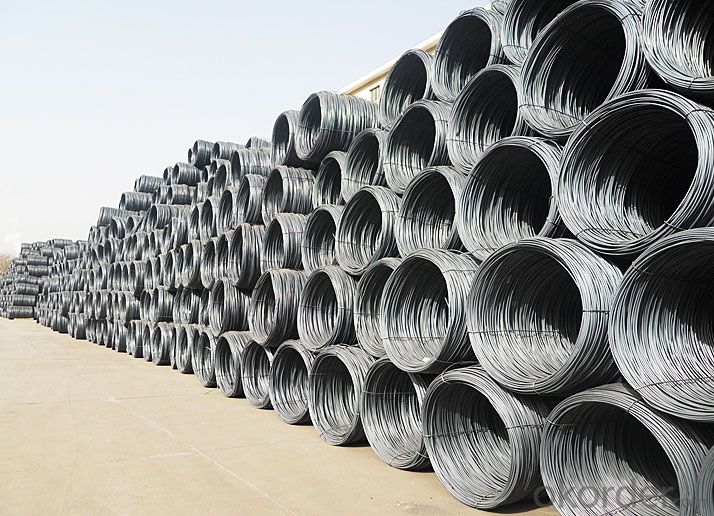
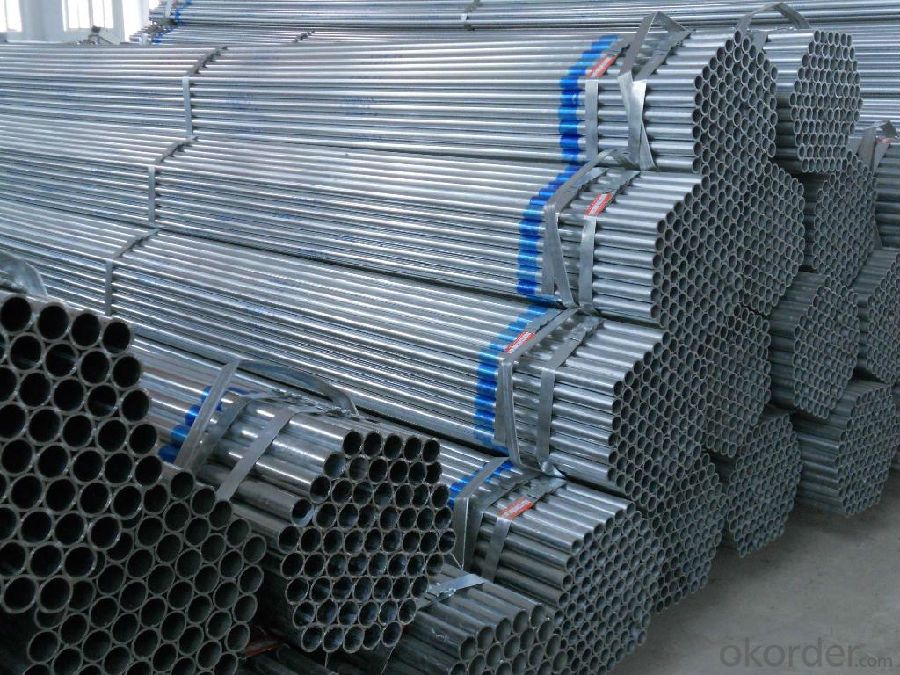
- Q: How do steel pipes handle chemical exposure?
- Steel pipes are renowned for their excellent ability to resist exposure to chemicals. The strength and durability of steel make it a dependable material for managing different types of chemicals. Steel pipes can endure contact with a diverse array of corrosive substances like acids, alkalis, solvents, and gases without undergoing significant degradation or damage. One of the primary factors contributing to the effectiveness of steel pipes in handling chemical exposure is their innate resistance to corrosion. Steel naturally resists corrosion and can create a protective oxide layer on its surface, which acts as a barrier against chemical attack. Additionally, steel pipes can be coated or lined with materials that have corrosion-resistant properties, such as epoxy, polyethylene, or cement, to offer additional defense against aggressive chemicals. Furthermore, steel pipes find widespread use in industrial settings where they encounter various chemicals. They are extensively employed in chemical plants, refineries, water treatment facilities, and other industries that require the transportation or storage of chemicals. Steel pipes can withstand the high pressures and temperatures associated with these processes while retaining their structural integrity and resistance to chemicals. However, it is important to acknowledge that the resistance of steel pipes to chemical exposure may vary depending on the specific type and concentration of the chemical. Certain highly corrosive substances may necessitate additional measures, such as specialized coatings or alloys, to ensure long-term protection. In conclusion, steel pipes are generally well-suited for managing chemical exposure due to their inherent resistance to corrosion, durability, and versatility. Their capability to endure a wide range of corrosive substances makes them a trustworthy choice for diverse industrial applications involving the transportation and storage of chemicals.
- Q: Are steel pipes resistant to UV radiation?
- Generally, steel pipes have resistance to UV radiation. UV radiation is known to cause damage to materials over time, resulting in fading, discoloration, and degradation. However, steel pipes usually have protective layers, such as paint or galvanization, that help shield them from UV radiation. These coatings act as a barrier, preventing direct exposure of the steel to UV rays and minimizing potential damage. Furthermore, steel's inherent properties, including strength and durability, make it less susceptible to the effects of UV radiation compared to materials like plastics or rubber. Nevertheless, it is important to note that prolonged exposure to intense UV radiation can still have some impact on steel pipes, such as slight discoloration or surface degradation. To ensure the continued performance and longevity of steel pipes in outdoor or UV-exposed environments, regular maintenance and inspection are recommended.
- Q: Stainless steel tube, also known as why tube?
- The longitudinal section can be divided into equal section tube and variable cross section tubeThe variable section tube has a conical tube, a stepped tube and a periodically cross section pipe, etc.
- Q: What's the difference between stainless steel seamless tube and stainless steel welded pipe?
- Stainless steel welded pipe is also a hollow section of steel, but it is welded through the plate into the steel pipe, so there is a welded steel pipe welding gap.
- Q: Seamless steel tube 89X4 meters, how heavy?
- Generally seamless steel pipe wall thickness will be uneven, according to the theory, each meter is 8.3844 kilograms, but if the wall thickness is poor 20--30 wire, then the weight will increase some
- Q: Are steel pipes suitable for wastewater pumping stations?
- Indeed, steel pipes prove to be a fitting option for wastewater pumping stations. Renowned for their endurance and robustness, steel pipes excel in handling the challenging conditions and high-pressure demands within these stations. They possess the capacity to withstand the corrosive properties of wastewater while resisting harm caused by chemicals and other aggressive substances commonly present in such environments. Furthermore, steel pipes are accessible in a variety of sizes and thicknesses, enabling customization to fulfill the specific requirements of each pumping station. Moreover, the ability to easily weld and connect steel pipes ensures a secure and leak-proof system. In conclusion, steel pipes provide a dependable and enduring solution for wastewater pumping stations.
- Q: How are steel pipes measured and categorized?
- Typically, steel pipes are measured and categorized by their outer diameter, wall thickness, and length. The outer diameter represents the width of the pipe when viewed from the side, while the wall thickness refers to how thick the pipe's walls are. These measurements are usually given in millimeters or inches. Categorizing steel pipes is done based on their purpose and specifications. The most common way to categorize them is by their pressure rating, which determines their ability to handle different levels of internal or external pressure. Pipes are divided into different pressure classes, like Schedule 40, Schedule 80, and Schedule 160, to name a few. The higher the pressure class, the thicker and stronger the pipe is. Steel pipes can also be categorized according to their manufacturing process and material composition. For instance, seamless steel pipes are created by piercing a solid steel bar to create a hollow tube, while welded steel pipes are made by rolling and welding a flat steel sheet or strip into a cylindrical shape. Additionally, steel pipes can be classified based on their material composition, such as carbon steel pipes, stainless steel pipes, or alloy steel pipes. Another way to categorize steel pipes is by their end connections or fittings. Common types of pipe ends include threaded ends, which are suitable for attaching fittings by screwing them onto the pipe, and plain ends, which are typically used for welding or flanging connections. In conclusion, the measurement and categorization of steel pipes are crucial for ensuring the proper selection and usage of these pipes in various industries, including construction, oil and gas, plumbing, and manufacturing.
- Q: What are the different pressure ratings for steel pipes?
- The different pressure ratings for steel pipes can vary depending on factors such as pipe size, wall thickness, and the type of steel used. Common pressure ratings for steel pipes range from 150 psi (pounds per square inch) to 2500 psi or higher.
- Q: Are steel pipes suitable for high-pressure applications?
- Yes, steel pipes are suitable for high-pressure applications. Steel pipes are known for their strength and durability, making them ideal for handling high-pressure applications. They can withstand the internal pressure exerted by fluids or gases under high pressure without deforming or bursting. The high tensile strength of steel allows it to resist the forces that occur in high-pressure environments, ensuring the safety and reliability of the piping system. Additionally, steel pipes can be manufactured with thicker walls to further enhance their ability to withstand high pressures. Steel pipes are widely used in industries such as oil and gas, petrochemical, power generation, and water distribution, where high-pressure applications are common.
- Q: Are steel pipes resistant to UV degradation?
- In general, steel pipes lack resistance to UV degradation. When exposed to ultraviolet (UV) radiation for extended periods, steel pipes may experience different types of degradation. The steel can become prone to brittleness, resulting in cracks and potential failure. Moreover, UV radiation can induce corrosion and discoloration on the surface of the steel pipes. To counteract the effects of UV degradation, it is possible to apply protective coatings or paint to create a barrier against UV radiation. Regular maintenance and inspections are crucial to detect any indications of UV degradation and implement necessary actions to prevent further deterioration.
Send your message to us
Steels Manufacture Building Material with Good Quality on Hot Sale
- Loading Port:
- Tianjin
- Payment Terms:
- TT OR LC
- Min Order Qty:
- 100 m.t
- Supply Capability:
- 1000 m.t/month
OKorder Service Pledge
OKorder Financial Service
Similar products
Hot products
Hot Searches
Related keywords
